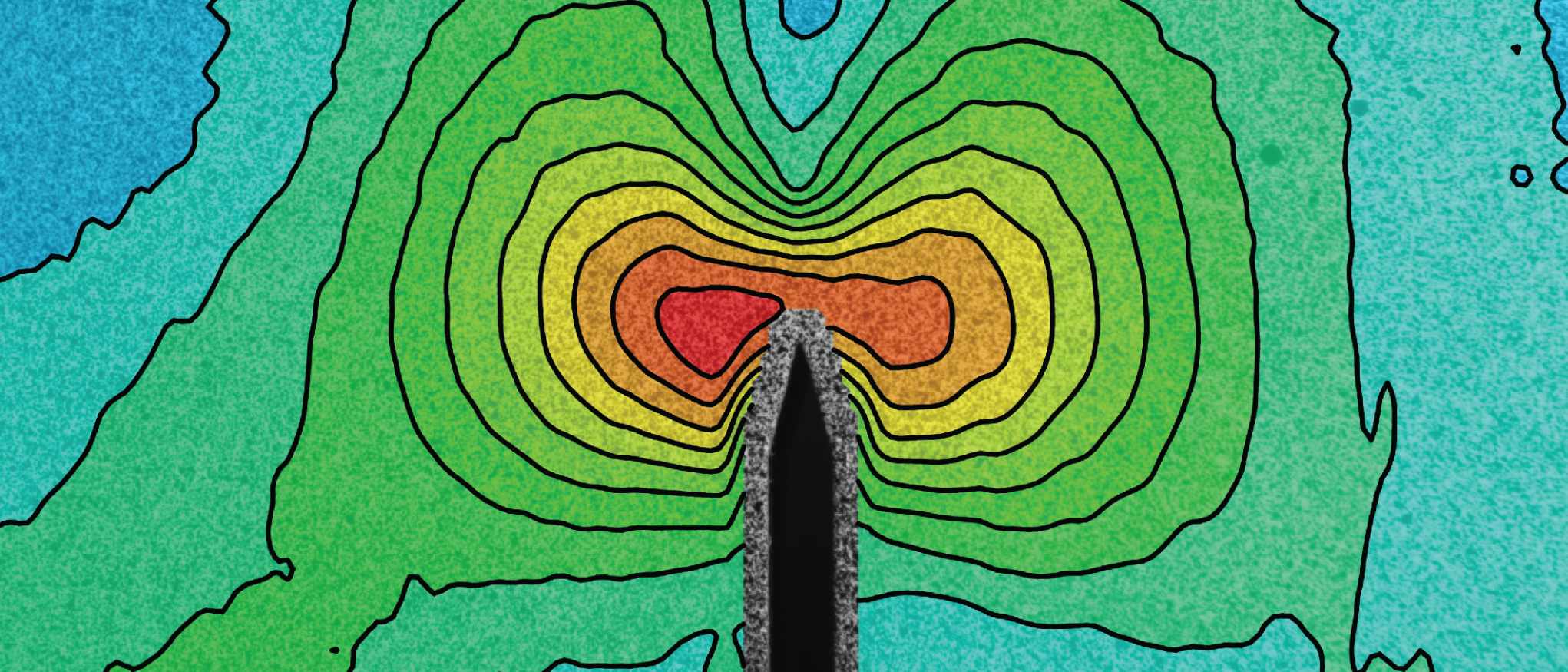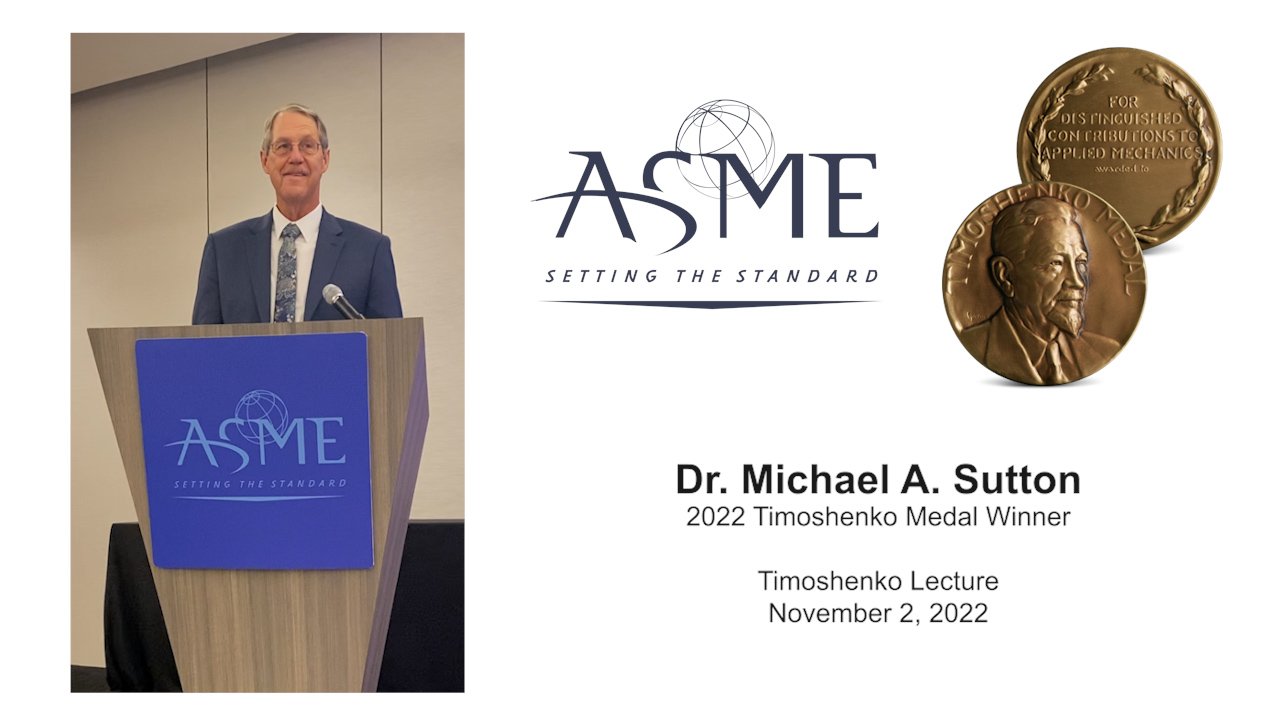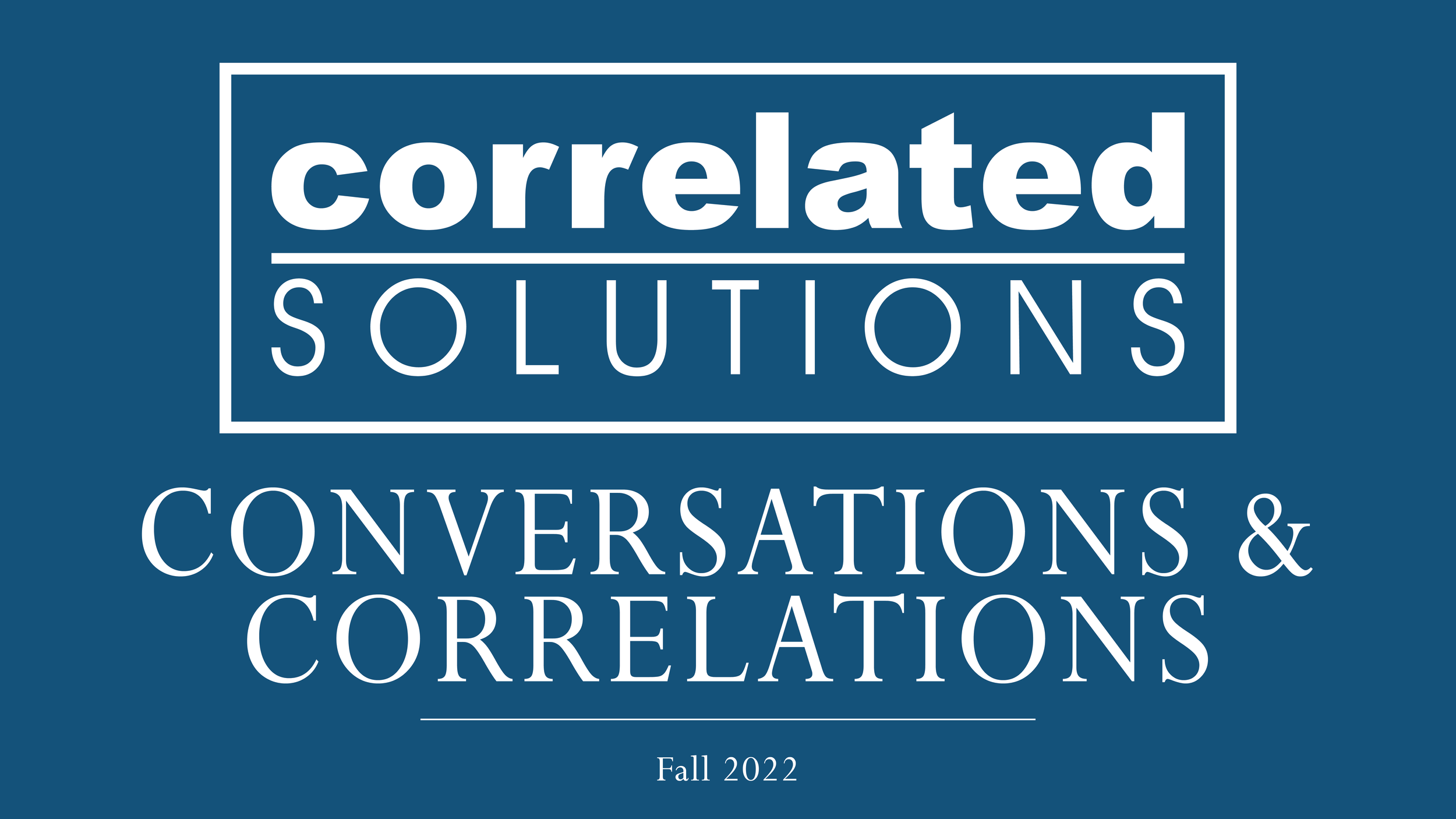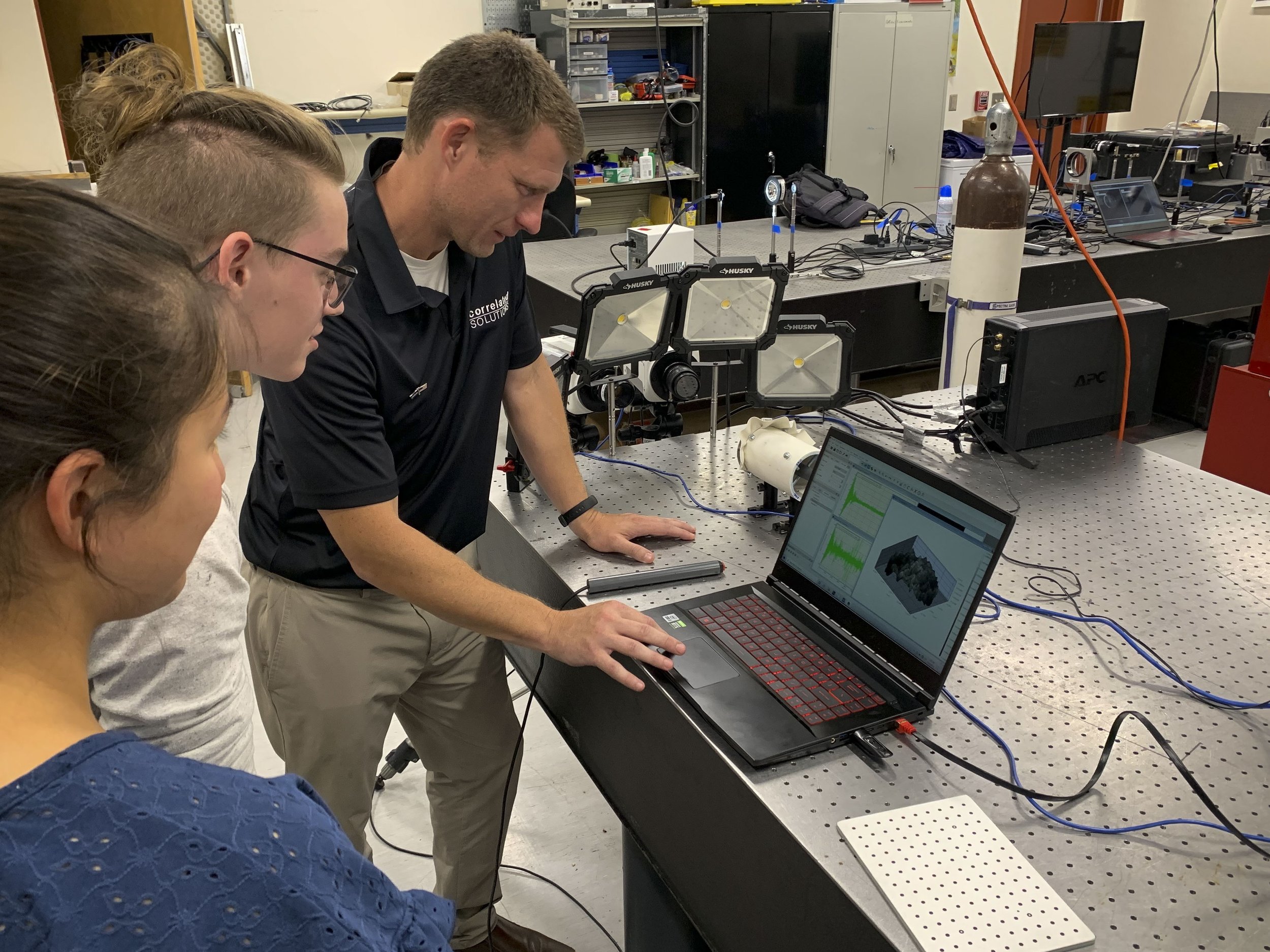
Recent News
Keep up with everything related to DIC
At Correlated Solutions, we do our best to keep our customers informed of the latest advancements in photogrammetry across engineering applications. We’ll cover new produce development, exceptional projects published by customers and partners, trade show and conference registration information, and much more. Check out the posts below to see what we’ve been working on.
Archive
- June 2025
- May 2025
- April 2025
- March 2025
- February 2025
- January 2025
- December 2024
- November 2024
- October 2024
- September 2024
- August 2024
- July 2024
- June 2024
- May 2024
- April 2024
- March 2024
- February 2024
- January 2024
- December 2023
- November 2023
- October 2023
- April 2023
- March 2023
- February 2023
- December 2022
- November 2022
- September 2022
- July 2022
- June 2022
- May 2022
- February 2022
- January 2022
- December 2021
- November 2021
- October 2021
- September 2021
- August 2021
- July 2021
- April 2021
- March 2021
- February 2021
- December 2020
- November 2020
- October 2020
- September 2020
- July 2020
- May 2020
- March 2020
- February 2020
Key Word
- Aerospace 3
- Ballistic Gel 1
- Batteries 1
- Calibration 5
- Civil 1
- Education 4
- FFT 3
- Fabric 2
- High-Temperature 2
- Industrial 3
- Infrared 2
- Large-Scale 1
- Lectures 2
- MTS 3
- Materials 6
- Multi-System 2
- Operational Deflection Shapes 2
- Real-Time 3
- Speckling 2
- Tutorials 1
- VIC-3D 9
- VIC-EDU 1
- holidays 3
- iDICs 4
- iris 3
DIC at Extremes
Dr. Calvin Stewart and his team at The Ohio State University are working at the extremes. In 2021, Dr. Stewart founded the Materials at Extremes Lab (MATX) and began to assemble the tools and personnel he needed to push the boundaries of “advanced manufacturing, mechanical testing, and theoretical mechanics of materials subject to thermal, mechanical, and chemical extremes.”
Resolution for 2024: Better Speckling!
This video covers the fundamentals of creating an effective speckle pattern for digital image correlation. In digital image correlation, one or more cameras take a series of images as a specimen deforms. Measurements are taken by precisely analyzing the position of unique groups of speckles on the surface of the object as it moves through successive images. Using an optimal speckle pattern is one of the most important factors in reducing measurement noise and improving overall DIC results, therefore, understanding the requirements of an ideal speckle pattern and how to apply one to a specimen is a vital part of DIC. In this tutorial, we briefly discuss the theoretical background of DIC, then we’ll cover general speckle pattern requirements and outline some common application methods.
Level 1 DIC Certification Success
We are proud to announce that two members of the Correlated Solutions Support Team recently received Level 1 DIC certification from iDICs, the International Digital Image Correlation Society.
From the inception of DIC at the University of South Carolina more than 25 years ago, the founders of Correlated Solutions have supported the effort to advance the practice of DIC around the world, and part of this effort involved helping to organize the International Digital Image Correlation Society (iDICs). In the years since, an important mission of iDICs was the standardization of DIC practice and the development of the Good Practices Guide for DIC and other training and educational opportunities. Recognizing the need to have trained and vetted DIC practitioners, iDICs has recently implemented the DIC Certification Program where industrial and research institutions can send their personnel to become certified DIC practitioners. Congratulations to Ian Adkins and Nick Lovaas (shown here in the field during trainings with VIC-3D) for all their hard work.
Large-Scale, Multi-System DIC Down Under
Correlated Solutions and Blink Technology Australia recently assisted Kevin Nievaart and his team at Swinburne University of Technology to successfully deploy the multi-system digital image correlation registration procedure which combines data from two or more VIC-3D DIC systems. This procedure provides a common coordinate system without any overlapping requirements and can dramatically reduce the effort and time needed to interpret and analyze deformation data. Ultimately, streamlining workflows with VIC-3D boosts the performance and research efficiency of the Smart Structures Lab. Special thanks to Kevin and his team for all the hard work!
Correlated Solutions VIC-3D + Pharsighted Ultra High-Speed Cameras
The VIC-3D HS system from Correlated Solutions is a powerful measurement tool which combines state-of-the-art digital image correlation software with the latest high-speed cameras from around the world. As we prepare for the release later this year of VIC-3D 10, we are eager to put the best high-speed cameras through their paces to see how they perform.
Happy Holidays from Correlated Solutions!
From all of us at Correlated Solutions, thank you for another incredible year. No matter how you celebrate, may your focus be sharp and your calibration score low!
Thermal Marking for Biomechanical Speckling
Interesting research was presented recently describing an alternative speckling technique for digital image correlation. In this work, a new methodology featuring thermal marking is deployed to carry out mechanical analysis and obtain deformation and displacement data using VIC-3D. It's early days for this research, but it shows a great deal of promise for biomechanical applications, and we're excited to see where it goes in the future.
High-Speed Digital Imaging Techniques for Blast and Impact Measurement
We were excited to return this week to the Energetic Materials Research and Testing Center (EMRTC) at New Mexico Tech to participate in a unique training course focused on optical diagnostics for high-speed explosion and impact events. This test demonstrated the fundamentals of 3D digital image correlation using the VIC-3D DIC software in conjunction with high-speed Photron Nova S16 cameras imaging a low velocity impact event to measure 3D displacements. We’re already looking forward to next year!
Dr. Michael Sutton Receives Timoshenko Medal
We are incredibly proud to announce that our co-founder, Dr. Michael Sutton is the 2022 recipient of the prestigious Timoshenko Medal from ASME (American Society of Mechanical Engineers) in recognition of distinguished contributions to the field of mechanical engineering.




















